Plastic waste is one of the greatest environmental challenges we have today. Collectively, we produce 400 million tons of plastic waste each year and the majority of this is not recycled and ends up in landfills, the ocean or the natural environment.
Using 100% recycled plastic panels and tubular metal, Maria is a modular planter, designed for the creation of educational gardens. It offers educational activities and experience for a greater understanding of the environmental emergency and proper waste disposal and helps users to visualise and remember the importance of plastic recycling and reuse.
Maria demonstrates the potential to create value from plastic scraps. It amplifies the global message of sustainability and environmental protection and promotes awareness of the circular economy as a paradigm for the future of our society.
- More Info
- Gallery
- Interview
- Contact
Challenge
Every year, about 400 tons of plastic waste are produced in the world, resulting in pollution of our Earth and sea. Italy is among the largest plastic-consuming countries, in fact every 5 days we produce 1 kg of plastic waste which, in one year, becomes 5.5 million tons.
Unfortunately, 70% of this is not being recycled or it is thrown into the environment.
A correct knowledge about the recycling process and opportunities is fundamental to encourage positive environmental behaviour and the development of an environmental consciousness.
Target group
Children, schools and educators, citizens
Solution
Maria is a planter designed for the creation of educational gardens.
The modular system, made of 100% recycled plastic panels and tubular metal, allows the user to freely compose the space. The dimensions of the vase make the urban furniture usable for children and young people and allow the addition of other elements such as bicycle racks.
Thanks to the use of recycled materials, the educational garden is also an opportunity to convey and amplify a message of environmental protection.
Custom textures can be developed together with children, starting with the recycling of markers, caps, games and other plastic materials, which can also be done live during our workshops.
Maria is a project by Plastiz, an Italian startup created in response to environmental and social emergencies caused by the growing invasion of plastic waste. It is a concrete contribution to circular economic processes where plastic waste is reused for the production of high quality surfaces and products.
Innovation
Maria is useful (it is a ready-to-use planter for the creation of educational gardens in schools), beautiful (plastic waste is made aesthetically interesting with colourful textures), modular (with multiple vases it is possible to create many compositions) and educational (it recalls the concept of recycling).
In addition to the planter, workshops can be organised on the school premises to raise awareness on environmental protection, circular economy, and sustainable production.
The workshops include an activity to discover plastics, their history and diffusion, and a creative laboratory where the recycling process of the material is reproduced.
Unique Selling Point
Fun, practical, easy to use, effective in the classroom
Follow the thought: Flexibility is key. The use of IT technologies in learning includes different types of activities using different devices (dance pad, game console, computer keyboard). This provides the opportunity to create an interactive, engaging and fun learning process that can allow great flexibility in developing a language.
Impact
Plastiz’s goal is to generate impact at the local and global level through the production of recycled plastic panels and the participation in initiatives and projects involving citizens, associations and public institutions.
In particular, our goals are:
- 60,000 kg of industrial or post-consumer plastic waste regenerated into our panels in one year of full production run
- 4,000 kg of plastic waste per year that would have been otherwise thrown into a landfill or burned, and that is instead directly committed to us through partnerships with manufacturing companies.
- 1,000 kg of biosourced and biodegradable bioplastic panels produced per year to promote the adoption of sustainable plastics
- 20 workshops per year to raise awareness on environment protection and circular economy processes
Feasibility / Transferability
The planter is made up of easy-to-assemble modules and comes with easy-to-follow assembly instructions.
The installation can thus directly involve students, who can take part in every step of the project, from placing the vases to harvesting fruit and vegetables.
Plastiz website:
http://www.plastiz.it/

 4 - Quality Education
4 - Quality Education
The COVID-19 outbreak has caused a global education crisis. Most education systems in the world have been severely affected by education disruptions and have faced unprecedented challenges. School closures brought on by the pandemic have had devastating consequences for children’s learning and well-being. It is estimated that 147 million children missed more than half of their in-class instruction over the past two years. This generation of children could lose a combined total of $17 trillion in lifetime earnings in present value. School closures have affected girls, children from disadvantaged backgrounds, those living in rural areas, children with disabilities and children from ethnic minorities more than their peers.
The proportion of young people completing upper secondary school increased from 54 per cent in 2015 to 58 per cent in 2020, with completion slowing down relative to progress in the preceding five-year period. It is too early to predict the effect of the COVID-19 pandemic on completion. Early indications from low-income countries based on phone surveys point to a small decline in attendance upon a return to school but a larger increase in repetition, which may increase dropout rates in coming years.
Data from 73 (mostly low- and middle-income) countries for the period of 2013-2021, indicate that about 7 in 10 children 3 and 4 years of age are developmentally on track, with no significant differences by child’s sex.
The participation rate in organized learning one year before the official primary entry age rose steadily in the years before the COVID-19 pandemic, from 69 per cent in 2010 to 75 per cent in 2020 but with considerable variation between countries (with the rate ranging from a figure as low as 13 per cent to nearly 100 per cent). This progress is being threatened by the COVID-19 pandemic, as schoolchildren in early childhood education and the early grades, especially from low- and middle-income countries, are the most affected by education disruption. In most countries, early education facilities and schools were partially or fully closed for more than a full school year.
Based on data for 2016-2018, the participation rate of youth and adults in formal and non-formal education and training in the previous 12 months among countries of sub-Saharan Africa with data is typically about 5 per cent or less compared with a rate of over 40 per cent in Northern American and many European countries.

 12 - Responsible Consumption & Production
12 - Responsible Consumption & Production
Developing countries bear a large part of the climate, biodiversity and pollution impacts of resource-intensive production processes, without reaping their benefits. This situation has been made worse by the impacts of the pandemic. As part of sustainable global pandemic recovery strategies, the implementation of sustainable consumption and production will maximize the socioeconomic benefits of resource use while minimizing the impacts.
In 2021, 83 policy instruments supporting the shift to sustainable consumption and production were reported by 26 countries, bringing the total number of policies developed, adopted and/or implemented up to 438 (as reported by 59 countries and the European Union for 2019–2021). However, the distribution of reported sustainable consumption and production policies has so far been uneven, with 79 per cent of policies reported by high-income and upper middle income countries, 0.5 per cent by low-income countries and only 7.7 per cent by least developed countries, landlocked developing countries and small island developing States.
The global material footprint continues to grow, although the pace has slowed. The average annual growth rate of the global material footprint for 2015–2019 was 1.1 per cent, compared with 2.8 per cent for 2000–2014, indicating a slowdown in the growth of economic pressure on the environment.
The proportion of food lost globally after harvest on farm, transport, storage, wholesale and processing levels is estimated at 13.3 per cent in 2020, with no visible trend since 2016, suggesting that structural patterns of food losses have not changed. At the regional level, sub-Saharan Africa has the highest proportion of losses at 21.4 per cent, with food being lost in large quantities between the farm and retail levels.
In addition to food loss, it is estimated that 931 million tons of food, or 17 per cent of total food available to consumers in 2019, was wasted at the household, food service and retail levels. Subsequent evidence suggests that household food waste declined during the COVID-19 pandemic lockdowns but has since returned to pre-pandemic levels.
The COVID-19 pandemic aggravated the global pollution crisis, in particular plastics pollution, making the effective implementation of the Basel Convention on the Control of Transboundary Movements of Hazardous Wastes and Their Disposal, the Rotterdam Convention on the Prior Informed Consent Procedure for Certain Hazardous Chemicals and Pesticides in International Trade and the Stockholm Convention on Persistent Organic Pollutants so much more urgent and important. The year 2021 was marked by the establishment of a new global regime for controlling trade of plastic wastes for better transparency and tracing, following the adoption of the plastic waste amendments to the Basel Convention in 2019.
A preliminary analysis from a sample of over 10,000 public companies around the world shows that over 60 per cent of large companies published sustainability reports in 2021, a twofold increase from 2016. The sustainability indicators that are most widely disclosed by companies include direct CO2 emissions, board diversity E/2022/55 22-06472 19/25 and number of board meetings, while the least disclosed indicators include ozone depleting substances, gender pay gap and bribery and fraud controversies.

